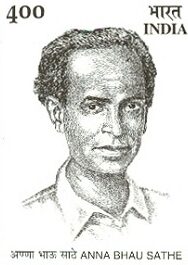Who inspired your life—parents, teachers, or cultural heroes? From Carl Jung’s archetypes to ancestral instincts, our subconscious shapes identity, relationships, and personal growth. Are we really self-made or products of influence? Discover how instinct, psychology, and early life examples guide our choices, including love, success, and self-realisation. Embrace your true origins—human nature, heritage, and subconscious wisdom.
Do you ever think about the heroes or legends that helped you shape your thoughts in this life? Do you remember whether your parents were your examples, and which aspects of their lives you praised and still apply in your own life? Which aunts and uncles have given you certain ideas or influenced your life?
Who made your life what it is today?
Was it the teachers at your schools? Were things that happened in your immediate environment, or the rest of the world, that made such an impression on you that they stuck to you forever? Maybe you got your inspiration or examples from music or from the world of sports? We often forget our "heroes" from life—those people who served as examples for our current existence. Or do you have no heroes, and are you "just" yourself? You feel that you have realised yourself completely.
Do you also believe in the "self-made" person?
You had no examples—never posters on your bedroom wall of heroes from music sports; no examples from your family. You have grown by studying hard and reading a lot, so you can safely say with a loud voice and a lot of arrogance that you have made yourself and your career what they are today. Sorry, but I always find it very funny and entertaining when I meet people with this attitude. I believe that everything we do and think about has been invented for centuries by others who lived before us, perhaps in a slightly different form or made of a different material, but it was always there.
Picture: Max Anders
Do you also look like an animal?
Would you like to look like an animal? Are we an animal too? Would we also like to be able to do what animals can do from birth? Many animals can walk almost immediately to their birth. For example, look at foals and calves, or fish that can swim or walk directly. Well, all those animals often don't have to learn to poop or pee on a potty, they can just do their business where they are, but it takes us about a year and a half, right? Animals can communicate "clearly" with each other right away; we must hope that our vade4rs and mothers immediately understand the meaning of our howling and screaming.
Do you ever brag about your unconscious feelings or instincts?
Animals get much more out of the subconscious of their subconscious, from their archetype, or their instinct. On the other hand, we humans think that we just do everything consciously. In the period around nineteen hundreds of our time, that time when psychology emerged from philosophy, the Swiss Psychologist Carl Gustav Jung (1875–1961) already indicated that we were something different from the animals in this respect. Otherwise? Well, we also inherited those instincts and archetypes from our ancestors; they were also our examples, but we also became incompletely aware of them. In my view, we did less with it than the animal world. Many people still don't know, or continue to deny, that they do many things from their subconscious.
Do you ever think about how and where your ancestors lived?
Do you know who your ancestors were and where and how they lived? No? Are you happily married? Based on my study of Jung's writings and those of antiquity, I dare to claim why many marriages fail in the present time. You may know that the balance in the ratio of men to women in a marriage has changed a lot since 1980, no? From that year on, the men were no longer automatically in charge of the house after their marriage. But there is more. Did you know, for example, that the archetypes help determine which partner we work with for the rest of our lives? That "the click" does not arise because we as humans believe in the wealth or appearance of the other, but that our instinct should largely determine that?
Do we choose our life partner based on our instinct or archetype?
Yes, we should choose our partners based on instinct and not on our reproductive drives or for monetary gain. Not as something for our career planning or as a good parent, but listening to our subconscious. I've had many examples in my life: "my mother, Elvis Presley, Mark Knopfler, Evert E., Ries, and many others. I didn't do much myself because I already had a lot in me from the transmission and instincts of my earliest ancestors. My thanks to all are great, and sorry if I sometimes did things unconsciously without thanking you all kindly!






